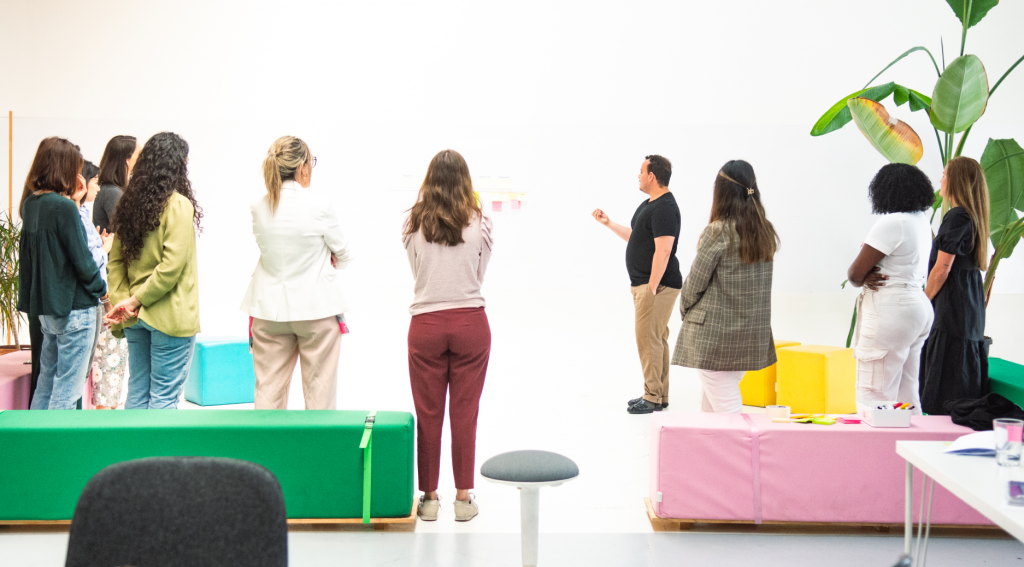Building a journey of inclusion: labor integration for the refugee community
Culture Design
With International Organization for Migration (IOM) — Portugal
Challenge
IOM Portugal, the International Organization for Migration, part of the United Nations System as the leading inter-governmental organization promoting humane and orderly migration for the benefit of all, challenged us to design and conduct a program to empower the community of resettled refugees in Portugal in their access to the labor market and help redefine the way employers integrate refugees in jobs, roles, and organizations.
Outcome
Two programs: one for resettled refugees and the other for employers. These programs consisted of workshops focused on developing new skills and redefining how we perceive inclusion in today’s labor market, especially when addressing the inclusion of migrant and refugee populations.
- Client
- International Organization for Migration (IOM) — Portugal
- Service
- Culture Design
- Location
- Portugal
- Duration
- 2 months + 8 workshops
- fields
- Research, Diversity & Inclusion, Migrant & Refugee Community
- team
- Rita Pureza, Ana Oliveira,
Ivan Bustillo
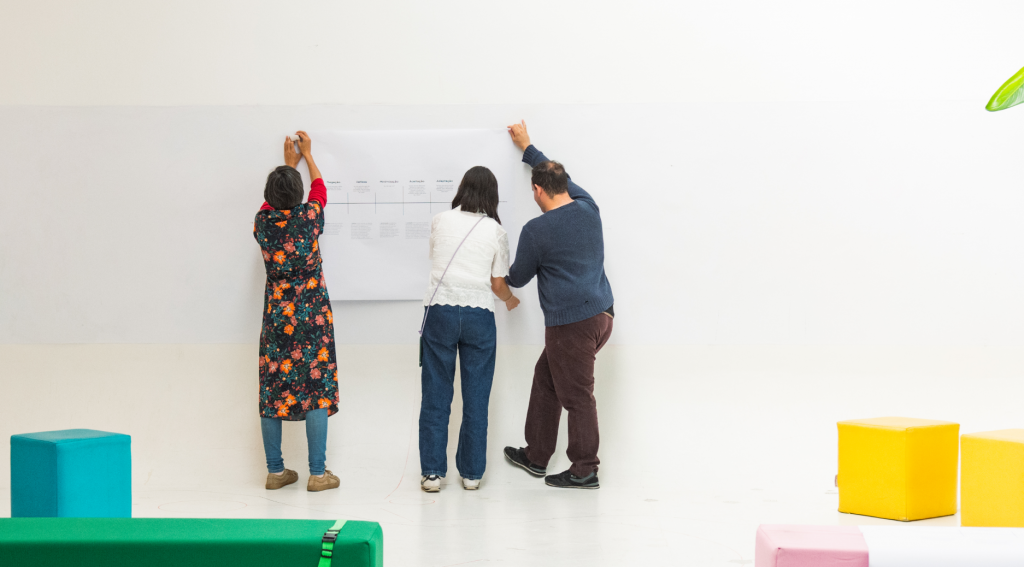
context
The community of resettled refugees in Portugal faces countless obstacles. The road to full participation and inclusion is troubled and sometimes impossible.
From the obvious barriers of acculturating to new settings, the infrastructural and systemic obstacles they find are undeniable. The recognition of qualifications and diplomas, the lack of access to the new language, the embedded structural discrimination, and the confusing service journeys they have to navigate are all just a small part of a larger system that does not favor these communities. These aspects create continuous loops of discrimination, not allowing space for active participation in society.
We understood an urgent need to redefine and design new approaches when addressing issues like this — especially when creating training and awareness programs. There is a need to pursue paths that empower the creation of safe spaces, support networks, and effective inclusion and belonging.
Work plays a fundamental role in the integration journey. It is how individuals can achieve financial security and open the door to meaningful and active involvement in communities and society.
our role
01
Conduct in-depth research to comprehend the main obstacles faced during a refugee’s journey to find, start, and maintain a job, while mapping support networks and infrastructure.
02
Design the sessions for both the refugee community and employers by involving diverse voices in their construction and shaping our approach during the process to ensure that these sessions were not designed through a biased perspective.
03
Facilitate the sessions in direct collaboration with an interpreter and cultural mediator. Guarantee the wellbeing of participants, focus on developing new skills, and the passage of fundamental messages.
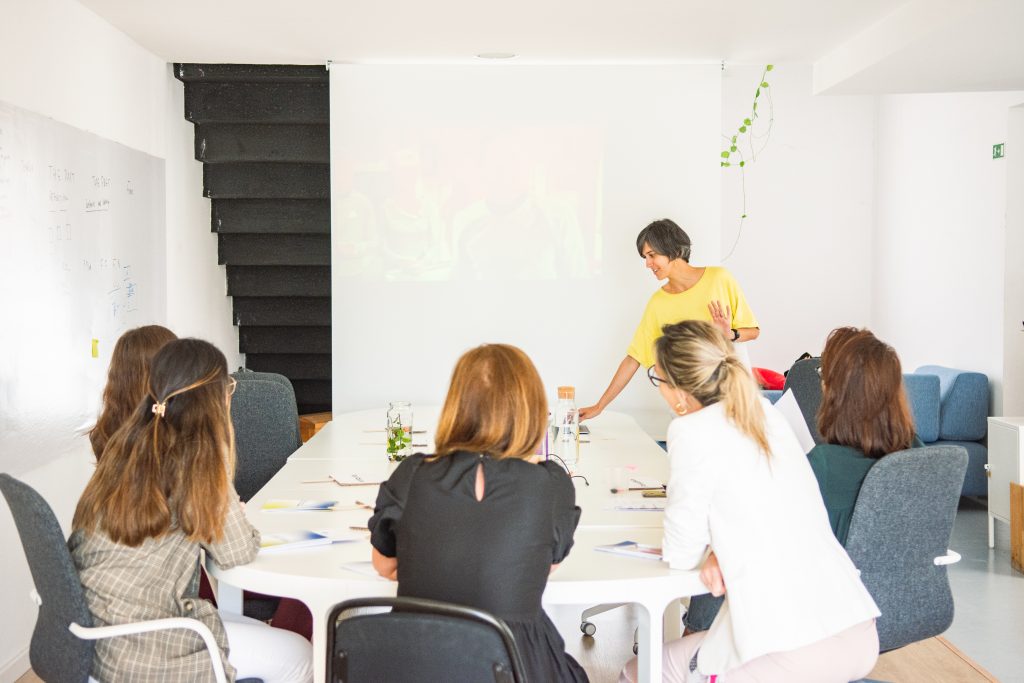
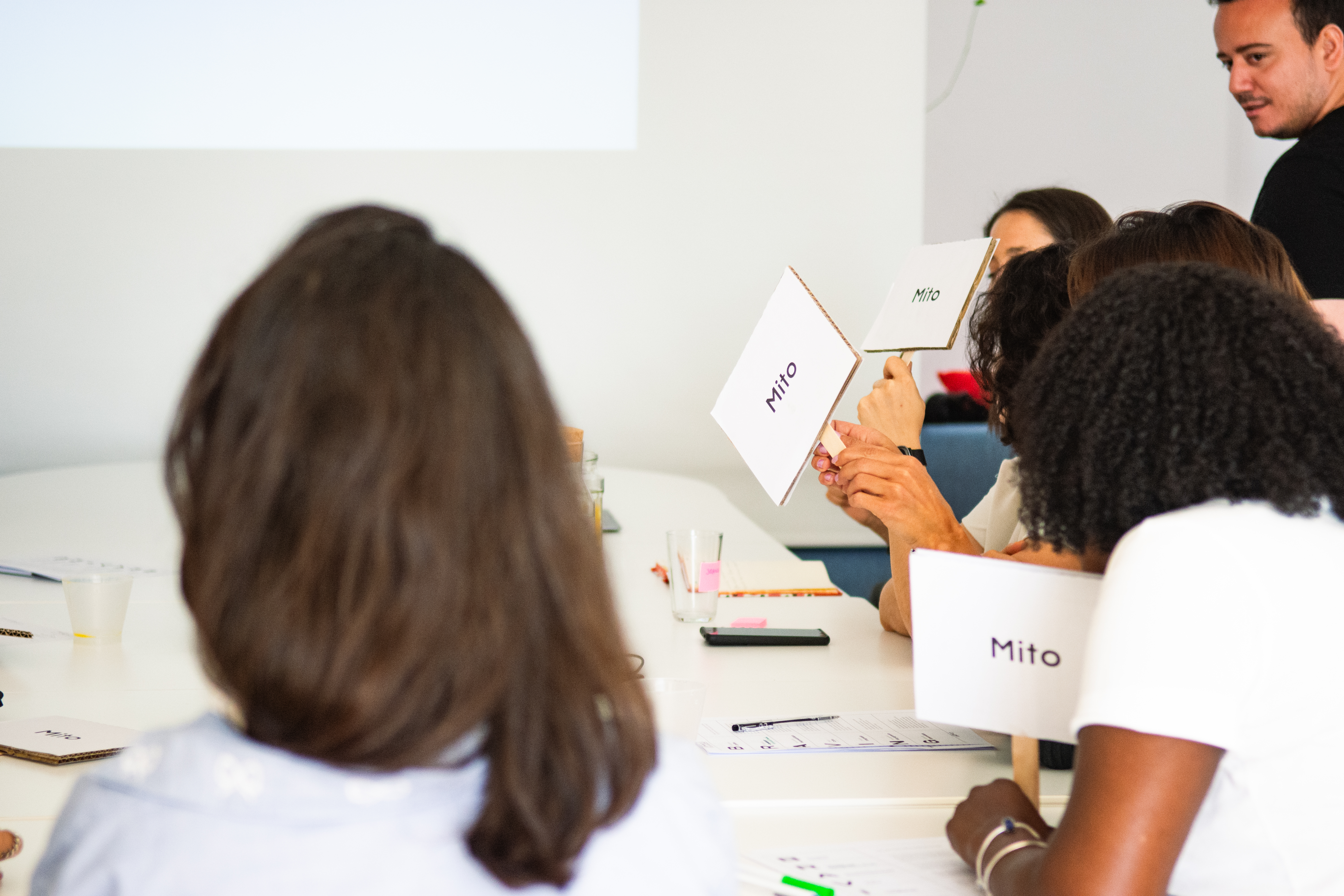
goal
Create a program focused on empowering the resettled refugees to access the Portuguese labor market and, simultaneously, rethink how their integration is designed and developed with employers.
APPROACH & METHODOLOGY
From the start of this project, we knew that the refugee community’s story was not ours to tell. We wanted to avoid approaching this project by assuming we knew their labor integration needs, desires, and obstacles during the journey. Therefore, we conducted different moments to understand the different perspectives of individuals involved in this story.
We focussed on comprehending integration as part of a journey made over time, resulting from re-establishing a new life project when a person arrives in their host country. Throughout the definition of this life project, various competencies needed to be developed or deepened, both on the side of the refugees and the employers, to ensure that integration fully takes place.
We understood that access to work is more than just focusing on finding a job. It regards access to education and learning opportunities, the comprehension of a new financial and social system, and the change in areas and fields of interest and expertise. It encompasses being able to communicate and navigate difficult conversations. Therefore, it is fundamental that we approach the topic by addressing the complexity of a journey with diverse steps and perspectives.
Therefore, the competencies explored during the sessions were not only focused on the issue of employability, looking at people only as workers or employers, but considering other relevant and transversal layers, firstly as a human being and then as a citizen.
Systemically reflecting on the topic, we intended to develop skills like self-advocacy, critical thinking, problem-solving, adaptability, nonviolent communication, intercultural sensitivity, emotional intelligence, empathy, bias deconstruction, and decision-making.
In-depth research on the different topics related to job search and integration identified key support networks and different points of contact and relevant information.
We conducted three in-depth interviews. One with a person within the Berlin refugee community who advocates and facilitates similar programs.; one with a person within the refugee community in Portugal, and a last interview with a stakeholder who works within the public system, assisting migrants in their access to jobs.
We designed all the fundamental dynamics and exercises for each type of session, identifying a co-construction narrative throughout each session.
The planning of each session was shared and discussed in a session group, to which we invited the IOM team and external profiles related to the topic or working directly on the field with employment/social integration of refugees who could also bring a more comprehensive and critical view to the approach and topics brought to the sessions.
1
group discussion
40
hours of workshops
2
interviews
3
locations
4
sessions with 47 employers
3
sessions in Arabic
4
sessions with 49 refugees
1
session in Farsi
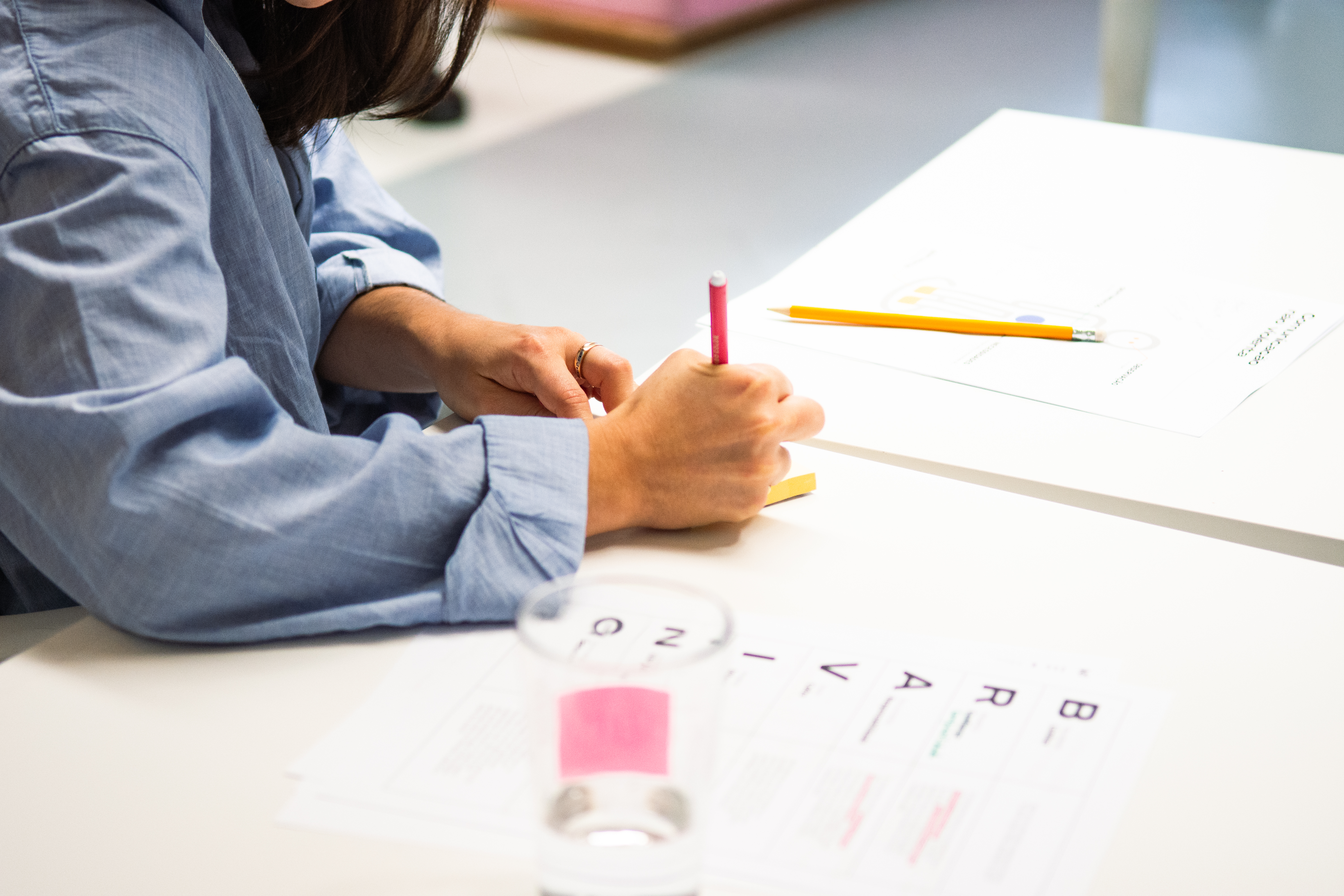
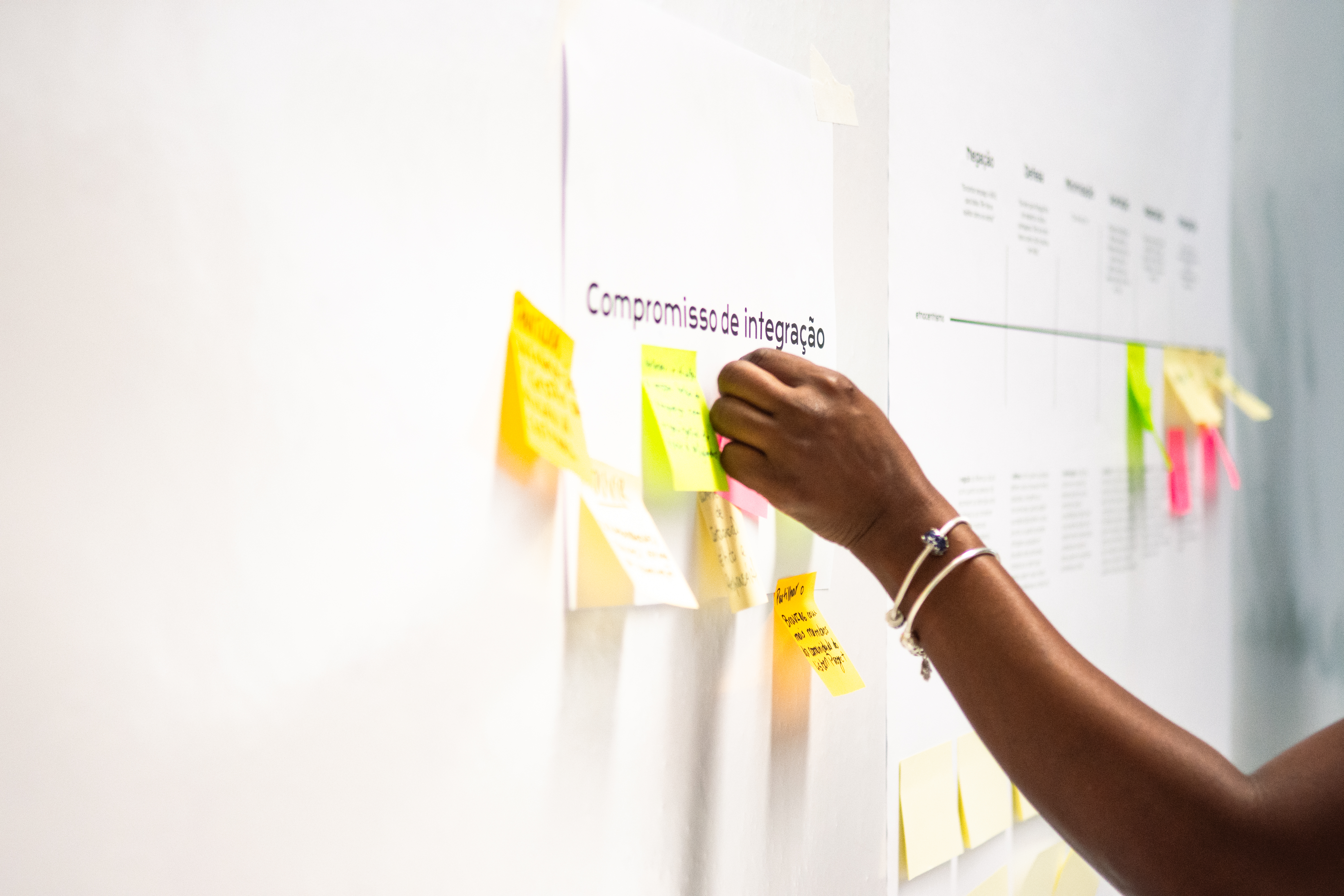
THE PROGRAMME
Sessions for Employers
We designed and developed four four-hour sessions dedicated to employers in the Portuguese context, and we reached 47 people from different organizations in Lisbon and Porto. Some of these organizations had already started an integration journey with migrants and refugees; others were driven by curiosity and interest. This multiplicity of profiles, companies, and types of organizations added to the discussions spontaneously during the sessions.
We understood how organizations sometimes struggle to navigate bureaucracy, processes and integrate refugees within teams, guaranteeing the wellbeing of all involved.
Sessions for Refugees
For these sessions, the expectations were high. Above all, we wanted to create a safe space and environment for everyone to feel comfortable asking questions and sharing their stories. We knew we would meet people with very different backgrounds and experiences about living in Portugal, with different expectations about the type of answers they would find in the training. Thus, we set the day with different moments of reflection, sharing, interaction, and informal socialization around food — a universal communication tool between people and cultures.
We held three sessions in Arabic: one in Braga and two in Lisbon — with Shahd Wadi’s translation. In Lisbon, we also had a session in Farsi (with Ismail Boali).
Cultural mediation and translation were fundamental for conducting the sessions and guaranteeing a sense of security and belonging.
We need to establish new bridges and connections to address and break down systemic cycles of oppression effectively, by bringing together the refugee community, public and private organizations, policymakers, and social infrastructures.
KEY TAKEAWAYS
In each session, we gave each person the space and voice to tell their story and journey. We understood that, more than following a workshop plan, it was fundamental to allow for safe spaces where people could share and discuss their real daily problems.
This project reinforced our desire to think about these matters more systematically to understand what can be done and who should be involved in order to find more agile and consequent global, or at least national, responses for all refugees.
Reflecting on this project highlights the importance of establishing bridges and connections to address and break down systemic cycles of oppression effectively. We must create collective efforts by bringing together the refugee community, public and private organizations, policymakers, and social infrastructures. We must design new approaches, processes, and journeys beyond ensuring job access. We actively need to ensure the complete social and economic integration of refugees and migrants into the host countries.
